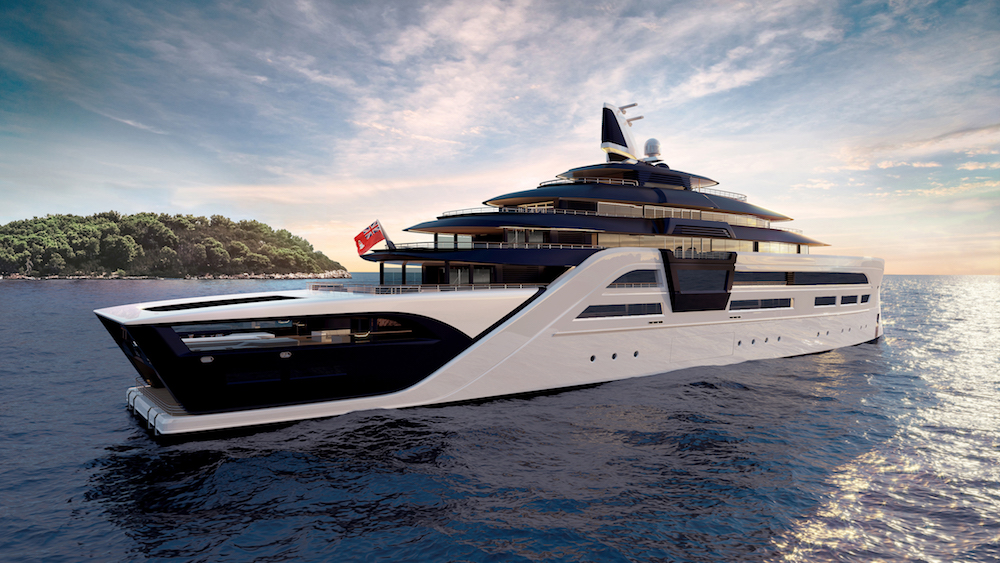Diplomatic-grade security and privacy
With owners wanting to spend extended periods on board, security infrastructure must enable protected business…
In recent years much has been made of the growing trend for superyacht owners to commission and build exploration vessels that have the requisite autonomy to allow the owners and guests to spend extended periods on board. Indeed, the demand for such periods on board has been exacerbated by the COVID-19 pandemic. However, for some owners, spending months on board their superyacht at a time is somewhat unrealistic because of the potential implications for their business. Without secure lines of communication and the necessary degree of connectivity and privacy, conducting confidential operations from on board a vessel represents a too greater risk. That being said, diplomatic-grade secure meeting infrastructure that would typically be reserved for governments to protect against malign state actors is now available for superyachts.
It should be mentioned from the offset that the infrastructure and technology discussed within this article are unnecessary for the vast majority of superyacht owners. While UHNWIs are without a doubt a tempting target for criminals of various kinds, few and far between are those that genuinely require a security package that has been designed for Tier 1 nations to defend their various interests. While available to all, this security infrastructure, as well as its supporting network, is really only the preserve of those individuals who’s geopolitical and economic clout is such that they have become persons/businesses of interest for larger, more well-financed malign actors. It just so happens that, while these individuals number very few, they also build and own superyachts.
“There are lots of companies that quite rightly look at cyber threats and associated human vulnerabilities. PDP Marine’s approach is very much to situate cyber threats within the broader risk landscape,” starts Gary Bird, a former officer in the Royal Marines, pioneer of ethical human intelligence collection and current senior consultant within PDP Marine. “As attention is drawn to the need for cyber resilience, it is important to note that other threats haven’t gone away, such as technological eavesdropping or indeed physical threats. What we protect against are myriad synergistic threats that combine a variety of attack mechanisms. We must never lose sight, however, that this should never be achieved at the expense of the freedoms that ownership should confer.”
As capabilities of superyachts have increased to the extent where it is now perfectly feasible for owners to spend a large period of time on board and, as a result, increasingly bring their family offices and businesses aboard, the importance of appropriate security infrastructure has grown in tandem. Two major influencing factors in this movement have been the desire to move towards a more adventurous and experiential superyacht lifestyle, as well as the notion that superyachts create a safe haven of sorts during pandemic environments. Indeed, both these trends have been observed and spoken about at length within the superyacht industry itself, but questions have remained over their prevalence.
“The idea of spending sustained periods on board with a family office in tow conducting international business, or of the superyacht as an extension of the wider business network, that includes various residences and offices, is something that we are definitely seeing,” continues Bird. “A desire to achieve this, however, is balanced by enquiries about the various associated risks and how to mitigate them. There are now some large superyachts going into build where the equilibrium between being constructed as a leisure platform and a business centre has shifted towards business, decisively in some cases.
“The capabilities we have brought to the superyacht industry are commensurate with that which we would typically apply within the global diplomatic arena, for example. There is a degree of controlled access and privacy on board many superyachts today, including safe rooms and other solutions, however, I can say categorically that the solutions we provide are orders of magnitude different from those currently available,” explains Bird. “We can provide a meeting environment which protects against egress and ingress of both sound and electromagnetic signals, to a level that will continue to surpass the most sophisticated offensive capabilities into the medium term. Further, they can also be supplemented by armour solutions and filtration systems. In essence, you have a meeting space that’s impervious to the eavesdropping capabilities of known actors. and allow confidence to engage in ‘high-context’ interactions that are critical to the most sensitive business or private engagements.”
While it may sound silly when referring to diplomatic-grade security, it would be unrealistic to discuss any superyacht interior solution without also paying a mind to the aesthetic considerations. According to Bird, the meeting environment (not room) can be designed to fit the aesthetic of any superyacht project. Indeed, for all intents and purposes, those who have access to the area should notice no difference when stepping from one room to another.
“I firmly advocate for such capabilities to be designed harmoniously into the flow and language of the vessel, rather than considered only as an afterthought and, for that reason, it is important that designers embrace this new way of thinking,” says Bird. “Yes, a degree of retrofitting can be done, but the idea is to prevent the design tensions that late consideration inevitably brings.”
The manner in which these novel privacy environments fuse proprietary materials with active signal dampening technologies, and how they are integrated into the vessel are not matters for discourse. Nonetheless, Bird acknowledges a need to balance cooperation with other stakeholders on the project, with an absolute requirement to protect the capabilities and the means to integrate them.
“Essentially, we create a canvas for the interior designer to work on so it can look and feel exactly as the owner requires. Nonetheless, we will need to ensure the integrity of the process to ensure that the aesthetic vision does not compromise the effectiveness of the environment.”
While the addition of diplomatic-grade privacy is certainly headline-grabbing and fascinating to learn about, Bird is also candid in the fact that for most individuals it is a level beyond what is typically required. The majority of threats he explains are avoidable without such extremes. As such, much of the work done by PDP leverages multi-source intelligence collection to protect ones legal and reputational equity – something that resonates across the yachting community, even where complex physical and technical threats may not apply.
“Intelligence must offer more than piracy threats – the interplay between a vessel, those on board, and the external human and physical environment are paramount. Local communities often know a large superyacht is arriving with alarming prescience. Invariably there is a leak somewhere within the communication chain and the information gets out. Part of our role is to protect the reputations of owners and guests, especially when getting off the beaten track or in less affluent regions. We enable owners to control their own narrative through an advanced notice of sentiment for example and suggesting ways that they can aid the local community. Ensuring a scientist is on board when they enter a UNESCO heritage site in order to contribute to research or using one’s doctor to offer assistance to an indigenous medical facility, are inherently preferable to accusations of insensitivity or detachment from real-world challenges” explains Bird. “Such are the capabilities of superyachts today, owners have an unprecedented opportunity to embrace the new world, we are simply here to ensure that they do so to their own advantage and without undue threat or unnecessary conflict.”
While the development of a premium service network has been crucial to the growth of global cruising capabilities, the creation of superyachts that have the ability to be autonomous for prolonged periods of time has taken the idea of superyachts being business hubs to the next level. The threat currently posed by the pandemic has further ramped up the speed with which owners are wanting to bring business on board. While there is no such thing as 100 per cent security or privacy, the ability to have diplomatic-grade infrastructure on board may just set the minds of the few at ease.
Image credit: Theodorus Fotiadis' Ultra2 concept incorporates a PDP Marine secure speech environment
Profile links
NEW: Sign up for SuperyachtNewsweek!
Get the latest weekly news, in-depth reports, intelligence, and strategic insights, delivered directly from The Superyacht Group's editors and market analysts.
Stay at the forefront of the superyacht industry with SuperyachtNewsweek
Click here to become part of The Superyacht Group community, and join us in our mission to make this industry accessible to all, and prosperous for the long-term. We are offering access to the superyacht industry’s most comprehensive and longstanding archive of business-critical information, as well as a comprehensive, real-time superyacht fleet database, for just £10 per month, because we are One Industry with One Mission. Sign up here.
Related news
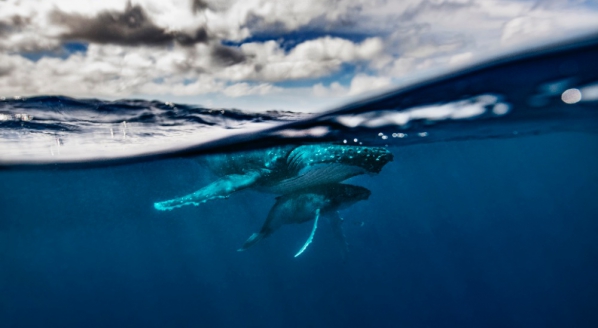
A disruptive approach to superyacht expeditions
Andrew Grant Super of Berkeley Rand says there is a clear need to innovate in the planning of superyacht itineraries
Technology
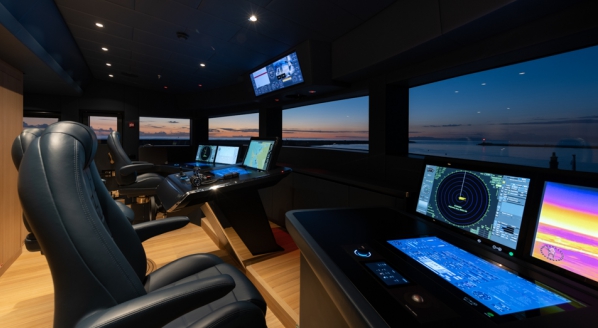
A bridge between innovative technology and the sea
TEAM Italia celebrates its 20-year anniversary
Technology
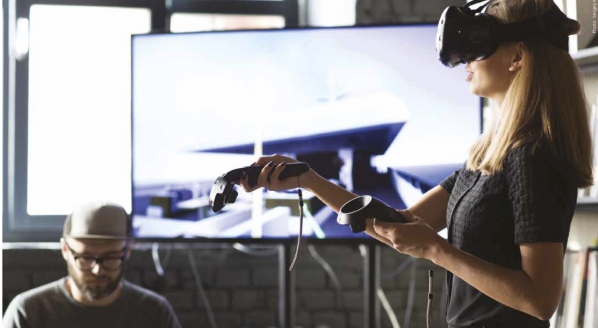
A new reality
Has the new reality we are living in changed the superyacht industry’s attitude towards virtual reality?
Technology
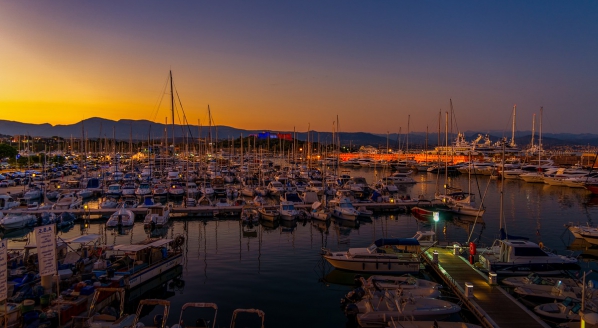
New regulations for superyachts entering French ports
People entering French ports must be in possession of a negative COVID-19 test taken less than 72hrs before arrival
Business
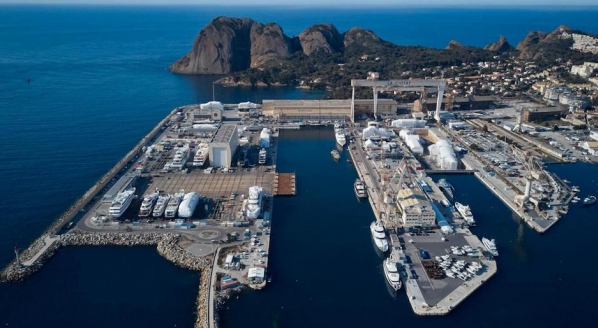
Taboo or not taboo
While not wanting to tempt fate, for Rob Papworth of MB92 La Ciotat, there is a burning issue that requires discussion
Technology
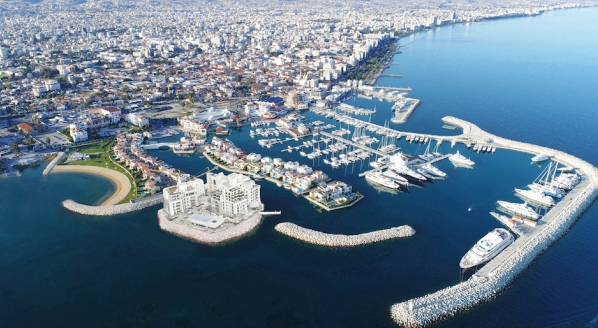
Limassol Marina, Cyprus: A destination for discovery
On the border of three continents, Limassol Marina is fast becoming one of the market’s most enticing locations
Owner
Related news
A disruptive approach to superyacht expeditions
5 years ago
A new reality
5 years ago
Taboo or not taboo
5 years ago
NEW: Sign up for
SuperyachtNewsweek!
Get the latest weekly news, in-depth reports, intelligence, and strategic insights, delivered directly from The Superyacht Group's editors and market analysts.
Stay at the forefront of the superyacht industry with SuperyachtNewsweek


